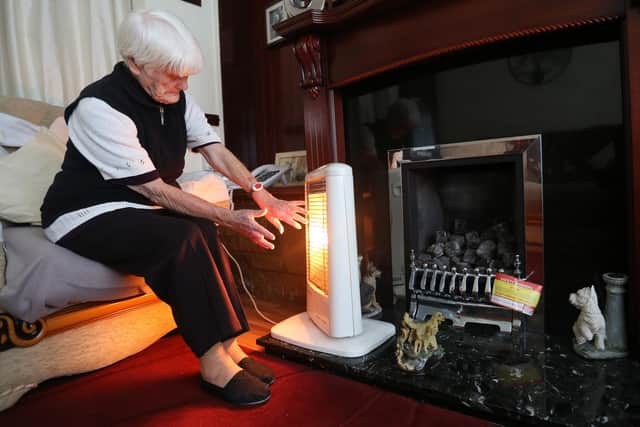Ofgem price cap: Average energy bill to go up by 54%, regulator announces
and live on Freeview channel 276
The new price cap announced on Thursday will take effect in Scotland, England and Wales in April and affect 22 million households.
It comes during a cost of living crisis, with people facing higher taxes and rising costs for food and other items.
Advertisement
Hide AdAdvertisement
Hide AdOfgem announced that the average energy bill will rise by £693 a year after the standard tariff increase of 54%.


However, your individual bill will be different depending on your size of property and the amount of energy you use.
The average customer will face an annual default tariff of £1,971 – up from £1,277.
Chancellor Rishi Sunak has said the vast majority of households will receive £350 of support to remove the “sting” from the energy crisis.
Advertisement
Hide AdAdvertisement
Hide AdThis will be distributed through council tax rebates for households in bands A to D and an upfront discount on bills.
Reacting to the cap, Andrew Bartlett, chief executive of Advice Direct Scotland, said: “This sharp rise will be a devastating blow for many households across Scotland.“It will cause deep anxiety and financial worries, leaving many people facing the stark choice of heating or eating.
“But Scots don’t have to struggle alone – free, impartial and practical advice is available to everyone in Scotland through our energyadvice.scot service.
“And charities and organisations in Scotland which provide debt, money or energy advice can sign up at homeheatingadvice.scot as a ‘referral partner’ to access a £3m Scottish Government fund for those in fuel poverty or rationing their energy use.”
A message from the Editor:
Thank you for reading this article. We're more reliant on your support than ever as the shift in consumer habits brought about by Coronavirus impacts our advertisers.
If you haven't already, please consider supporting our trusted, fact-checked journalism by taking out a digital subscription.
Comment Guidelines
National World encourages reader discussion on our stories. User feedback, insights and back-and-forth exchanges add a rich layer of context to reporting. Please review our Community Guidelines before commenting.
